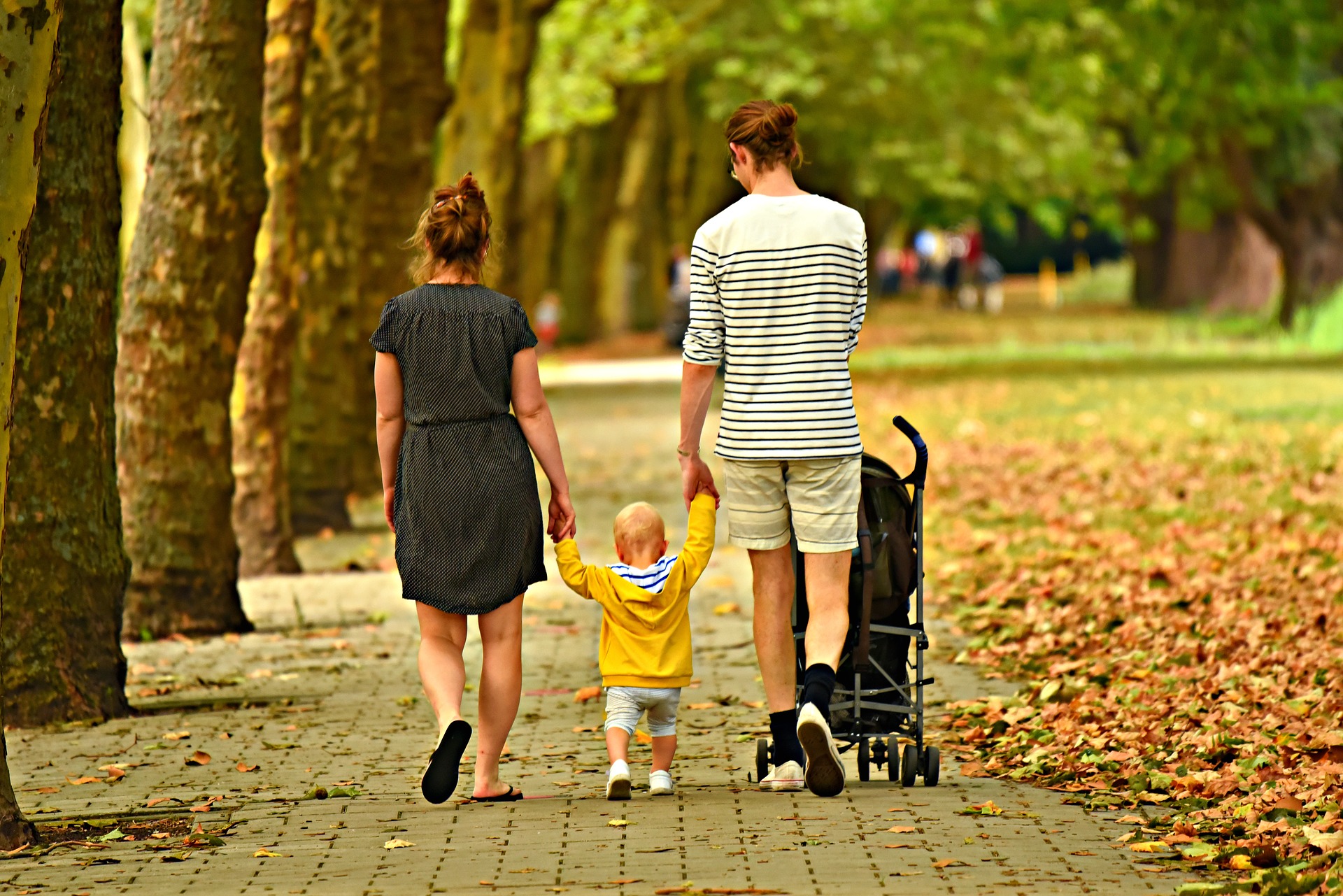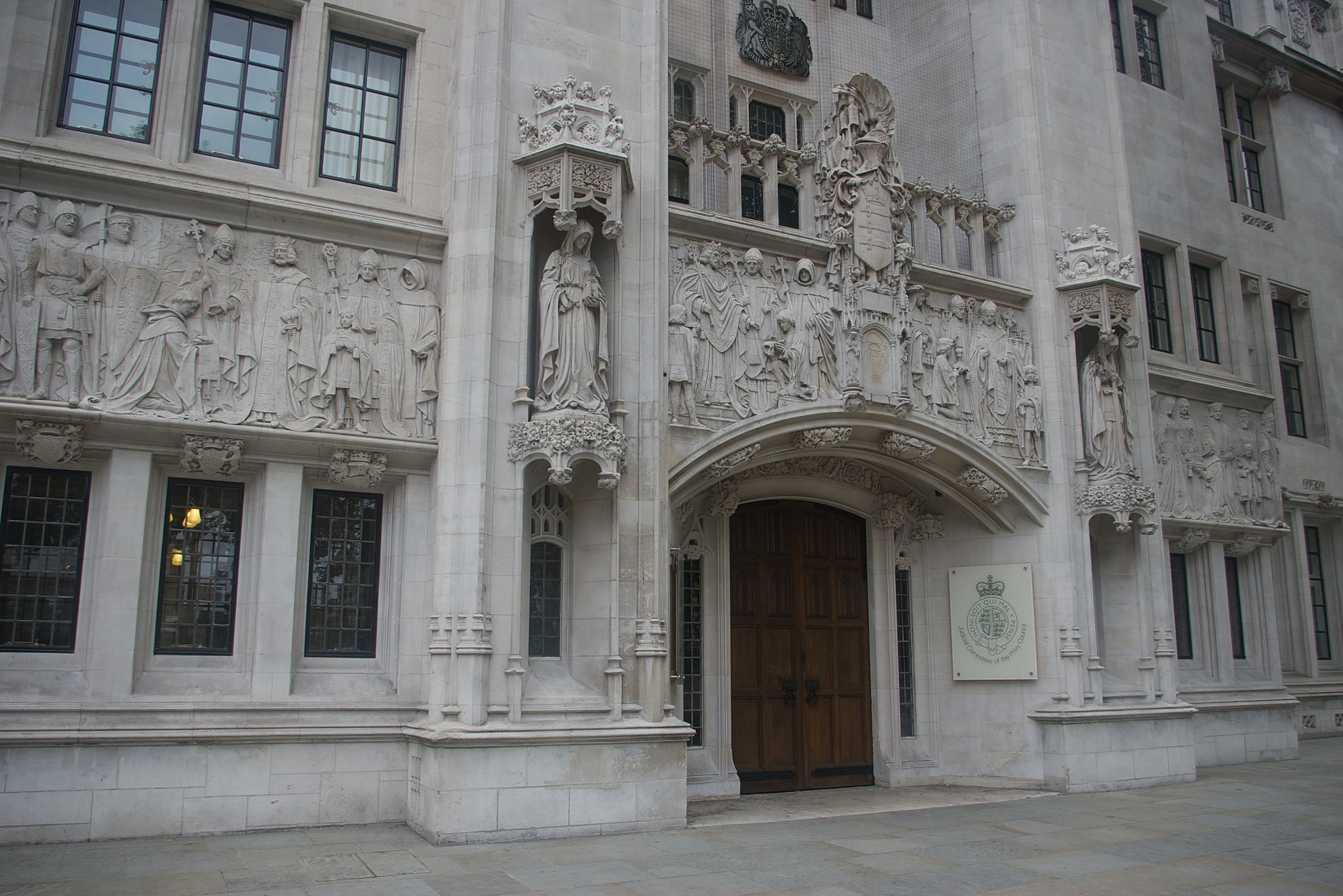An unmarried mother has been granted access to a Widowed Parent’s Allowance in a landmark Supreme Court ruling.
Siobhan McLaughlin from County Antrim is a mother of four children who lived with her partner, John Adams, for 23 years. They did not marry or enter into a civil partnership.
Following her partner’s death in 2014, she was refused the Widowed Parent’s Allowance, a benefit she would have been entitled to if McLaughlin and Adams had married or been in a civil partnership.
The judgement issued by the Supreme Court ruled that McLaughlin should not be denied the Widowed Parent’s Allowance simply because she and Adams were unmarried and had not entered into a civil partnership.
It’s being hailed as a landmark judgement because it advances the rights of unmarried couples in the UK. In November 2017, the Office of National Statistics revealed that there are 3.3m cohabiting couples in the UK, the fastest growing family type.
Denial of the Bereavement Allowance Breaches the McLaughlin Family’s Human Rights
 Credit: James Cridland Flickr
Credit: James Cridland Flickr
Four Justices ruled in favour of Ms McLaughlin’s right to receive a Bereavement Allowance, with one ruling against.
Initially, the Northern Ireland Department of Communities had refused Ms McLaughlin’s claim for Bereavement Allowance, and she sought a judicial review on the basis that the refusal is incompatible with Article 14 of the Human Rights Convention.
Article 14 is the right to be protected from discrimination. It stipulates that, “The enjoyment of the rights and freedoms, set forth in this Convention shall be secured without any discrimination on any ground such as sex, race, colour, language, religion, political or other opinions, national or social origin, association with a national minority, property, birth or other status”.
Today, the Supreme Court ruled that the denial of Ms McLaughlin’s claim for Bereavement Allowance breaches Article 14. The judgement also referenced Article 8, the right to family and private life, and the state responsibility to respect family life.
A summary of today’s judgement issued by the Supreme Court, states: “Article 14 secures the rights and freedoms of the ECHR [European Convention on Human Rights or Human Rights Convention] without discrimination.”
The judgement outlines that being unmarried is a status under article 14, just as being married can be, and rules that denial of the Widowed Parent’s Allowance on the basis of being unmarried is incompatible with the Human Rights Act (1998).
The Judgement Has Seen Campaigners Call For a Change in the Law
 There are 3.3m co-habiting families in the UK. Credit: Mabel Amber Pixabay
There are 3.3m co-habiting families in the UK. Credit: Mabel Amber Pixabay
On delivering the verdict Lady Hale, the presiding judge, said: “It is difficult indeed to see the justification for denying people and their children benefits, or paying them at a lower rate of benefit, simply because the adults are not married to one another. Their needs, and more importantly their children’s needs, are the same”.
It is difficult indeed to see the justification for denying people and their children benefits, or paying them at a lower rate of benefit, simply because the adults are not married to one another.
Lady Hale, presiding judge
Campaigners have been urging the government to ensure all children who experience the death of a parent are entitled to financial support from the state, in the same way as children whose parents are married.
Now that the Supreme Court has ruled that the denial of Widow’s Payment Allowance to co-habiting families is discriminatory, there is hope that it will be extended to thousands more families.
Following the judgement Ms McLaughlin’s solicitor, Laura Banks from Francis Hanna & Co, told the Independent: “This is an extremely significant victory, not only for Siobhan and her children, but for thousands of families throughout the UK.
“An estimated 2,000 families each year are turned away from bereavement benefits because of this legislation which the Supreme Court has today clearly stated is unjustifiably discriminatory.
We urge Parliament to amend the relevant legislation as quickly as possible.
Alison Penny, Childhood Bereavement Network
“We are absolutely delighted with this landmark decision and the tremendous impact it should have on the lives of families in times of great need. We consider that it finally puts an end to this shameful, almost Victorian discrimination.”
In a joint statement issued by the Childhood Bereavement Network, the Child Poverty Action Group and the National Children’s Bureau, Alison Penny of the Childhood Bereavement Network said:
“Parents make the same National Insurance contributions whether they are married or cohabiting. But at the moment, if one of them dies, their contributions only entitle their partner and children to bereavement support if the couple were married.
“The Court’s judgement is that this is incompatible with human rights law. We urge Parliament to amend the relevant legislation as quickly as possible, and to clarify the position for those parents who were previously deemed ineligible because of their marital status.”
“We pay tribute to Siobhan for having the courage to bring this test case and improve the situation for thousands of grieving children and their surviving parents.”







